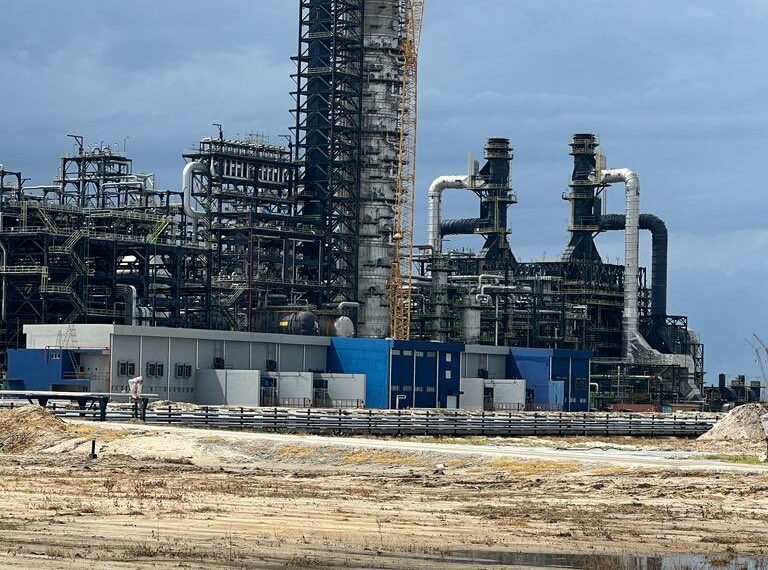The 650,000 barrels per day Dangote Refinery has concluded plans to export its first fuel cargoes, according to a report.
The refinery has issued tenders to sell two fuel cargoes for export, Reuters reported Wednesday, quoting trading sources with knowledge of the matter.
The first cargo is 65,000 metric tons of low-sulphur straight-run fuel oil, which Dangote has awarded to Trafigura and is due to load at the end of February, three of the sources said.
At least one refiner said they had been offered the cargo by Trafigura without elaborating further. The second tender is for about 60,000 tons of naphtha, three other sources said. Two of them noted that the tender closes on 15 February. Loading details were not immediately available, according to the report.
The report noted that Trafigura and Dangote declined a request to comment.
Dangote Petroleum Refinery had earlier in January commenced production of diesel and aviation fuel.
Announcing the commencement in a statement, the company said the refinery has so far received six million barrels of crude oil at its two SPMs located 25 kilometres from the shore.
The first crude delivery was done on 12 December 2023, and the 6th cargo was delivered on 8 January.
The first cargo that arrived at the plant was from Agbami crude grade from Shell International Trading and Shipping Company Limited (STASCO), one of the largest trading companies in Nigeria and globally, trading over 8 million barrels of crude oil daily.
The company made a further move towards the commencement of the production of refined petroleum products with the receipt of an additional one million barrels of crude bonny light supplied by the Nigeria National Petroleum Company (NNPC Ltd). By Mary Izuaka, Premium Times






